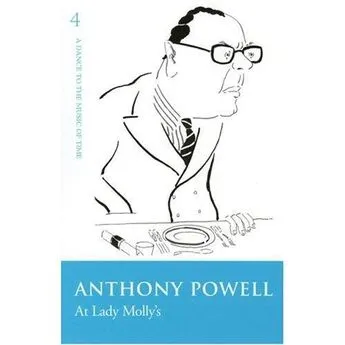Anthony Powell - A Buyers Market
- Название:A Buyers Market
- Автор:
- Жанр:
- Издательство:Arrow
- Год:2005
- ISBN:нет данных
- Рейтинг:
- Избранное:Добавить в избранное
-
Отзывы:
-
Ваша оценка:
Anthony Powell - A Buyers Market краткое содержание
Anthony Powell's universally acclaimed epic A Dance to the Music of Time offers a matchless panorama of twentieth-century London. Now, for the first time in decades, readers in the United States can read the books of Dance as they were originally published-as twelve individual novels-but with a twenty-first-century twist: they're available only as e-books. The second volume, A Buyer's Market (1952), finds young Nick Jenkins struggling to establish himself in London. Amid the fever of the 1920s, he attends formal dinners and wild parties; makes his first tentative forays into the worlds of art, culture, and bohemian life; and suffers his first disappointments in love. Old friends come and go, but the paths they once shared are rapidly diverging: Stringham is settling into a life of debauchery and drink, Templer is plunging into the world of business, and Widmerpool, though still a figure of out-of-place grotesquerie, remains unbowed, confident in his own importance and eventual success. A Buyer's Market is a striking portrait of the pleasures and anxieties of early adulthood, set against a backdrop of London life and culture at one of its most effervescent moments.
A Buyers Market - читать онлайн бесплатно полную версию (весь текст целиком)
Интервал:
Закладка:
Even in this undignified mishap there had been, as ever, that touch of martyrdom inseparable from the conduct of his life, since he had been on his way, so it was learnt afterwards, to lodge a complaint with the management regarding the club’s existing sanitary arrangements: universally agreed to be deplorable enough. It was true that he might have taken a little more to drink than was usual for someone who, after the first glass or two, was relatively abstemious in his habit. His behaviour at Mrs. Andriadis’s, occasioned, of course, far more by outraged principles than unaccustomed champagne, had been, so I discovered from Barnby, quite exceptional in its unbridled nature, and had proved, indeed, a source of great worry to Mr. Deacon in the weeks that followed.
As a matter of fact, I had never learnt how the question of his exit from the house in Hill Street had been finally settled. Whether Mr. Deacon had attempted to justify himself with Mrs. Andriadis, or whether she, on her part, compelled him — with, or without, the assistance of men-servants, Max Pilgrim, or the Negro — to clear up the litter of papers in the hall, the future never revealed. Mr. Deacon himself, on subsequent occasions, chose to indicate only in the most general terms that he had found Mrs. Andriadis’s party unenjoyable. When her name had once cropped up in conversation, he echoed a sentiment often expressed by Uncle Giles, in remarking: “People’s manners have changed a lot since the war — not always for the better.” He did not disclose, even to Barnby, who acted in some respects almost as his conscience, the exact reason for his quarrel with the singer, apart from the fact that he had taken exception to specific phrases in the song, so that the nature of his difference with Pilgrim on some earlier occasion remained a matter for speculation.
However, if undeniable that at Hill Street Mr. Deacon had taken perhaps a glass or two more of champagne than was wise, the luxurious style of the surroundings had no doubt also played their part in stimulating that quixotic desire, never far below the surface in all his conduct, to champion his ideals, wherever he found himself, however unsuitable the occasion. At the night-club he was, of course, in more familiar environment, and it was agreed by everyone present that the fall had been in no way attributable to anything more than a rickety staircase and his own habitual impetuosity. The truth was that, as a man no longer young, he would have been wiser in this, and no doubt in other matters too, to have shown less frenzied haste in attempting to bring about the righting of so many of life’s glaring wrongs.
At such an hour, in such a place, nothing much was thought of the fall at the time, neither by Mr. Deacon nor the rest of his party. He had complained, so it was said, only of a bruise on his thigh and a “shaking up” inside. Indeed, he had insisted on prolonging the festivities, if they could be so called, until four o’clock in the morning: an hour when Barnby, woken at last after repeated knocking, had been roused to admit him, with Gypsy, once more to the house, because the latch-key had by that time been lost or mislaid. Mr. Deacon had gone into hospital a day or two later. He must have sustained some internal injury, for he died within the week.
We had met fairly often in the course of renewed acquaintance, for I had taken to dropping in on Barnby once or twice a week, and we would sometimes descend to the shop, or Mr. Deacon’s sitting-room, for a talk, or go across with him to the pub for a drink. Now he was no more. Transition between the states of life and death had been effected with such formidable rapidity that his anniversary seemed scarcely completed before he had been thus silently called away; and, as Barnby remarked some time later, it was “hard to think of Edgar without being overwhelmed with moralisings of a somewhat banal kind.” I certainly felt sad that I should not see Mr. Deacon again. The milestones provided by him had now come suddenly to an end. The road stretched forward still.
“Edgar’s sister is picking up the pieces,” Barnby said. “She is a clergyman’s wife, living in Norfolk, and has already had a shattering row with Jones.”
He had made this remark when informing me by telephone of arrangements made for the funeral, which was to take place on a Saturday: the day, as it happened, upon which I had agreed to have supper with Widmerpool and his mother at their flat. This invitation, arriving in the form of a note from Mrs. Widmerpool, had added that she was looking forward to meeting “so old a friend” of her son’s. I was not sure that this was exactly the light in which I wished, or, indeed, had any right, to appear; although I had to admit to myself that I was curious to learn from Widmerpool’s lips, as I had not seen him since Stourwater, an account, told from his own point of view, of the course events had taken in connection with himself and Gypsy Jones. I had already received one summary from Barnby on my first visit to Mr. Deacon’s shop after return from the Walpole-Wilsons’. He had spoken of the subject at once, so that no question of betraying Widmerpool’s confidence arose.
“Your friend paid,” Barnby had said. “And that was all.”
“How do you know?”
“Jones told me.”
“Is she to be believed?”
“No statement on that subject can ever be unreservedly accepted,” said Barnby. “But he has never turned up here since. Her story is that he left in a rage.”
“I don’t wonder.”
Barnby shook his head and laughed. He did not like Gypsy, nor she him, and so far as he was concerned, that was an end of the matter. I saw his point, though personally I did not share the obduracy of his views. In fact there were moments when Gypsy turned up at the shop and we seemed to get on rather well together. Her egotism was of that entirely unrestrained kind, always hard to resist when accompanied by tolerable looks, a passionate self-absorption of the crudest kind, extending almost far enough to threaten the limits of sanity: with the added attraction of unfamiliar ways and thought. Besides, there was something disarming, almost touching, about her imperfectly concealed respect for “books,” which played a considerable part in her conversation when not talking of “chalking” and other political activities. However — as Barbara might have said — there was no need to become sentimental. Gypsy usually showed herself, on the whole, more agreeable than on the first night we had met, but she could still be tiresome enough if the mood so took her.
“Jones is an excellent specimen of middle-class female education brought to its logical conclusions,” Barnby used to say. “She couldn’t be more perfect even if she had gone to the university. Her head is stuffed full of all the most pretentious nonsense you can think of, and she is incapable — but literally incapable — of thought. The upper and lower classes can sometimes keep their daughters in order — the middle classes rarely, if ever. I belong to the latter, and I know.”
I felt this judgment unnecessarily severe. Claiming, as she did, some elementary knowledge of typing and shorthand, Gypsy was temporarily employed in some unspecified capacity, next-door to Mr. Deacon’s, at the offices of the Vox Populi Press: duties alleged by Barnby to be contingent on “sleeping with Craggs,” managing director of that concern. There seemed no reason either to accept or refute this statement, for, as Mr. Deacon used to remark, not without a touch of pride in his voice: “Indiscretion is Gypsy’s creed.” There could be no doubt that she lived up to this specification, although, as a matter of fact, shared political sympathies might equally well have explained close association with Craggs, since the Press (which was, in truth, merely a small publishing business, and did not, as its name implied, print its own publications) was primarily concerned with producing books and pamphlets of an insurgent tone.
Mr. Deacon had talked a lot about his birthday party before it had taken place, discussing at great length who should, and who should not, be invited. He had determined, for some reason, that it was to be a “respectable” gathering, though no one, not even Barnby and Gypsy Jones knew where — or rather at whom — Mr. Deacon was likely to draw the line. Naturally, these two were themselves to be present, and they were to ask, at Mr. Deacon’s suggestion, some of their own friends. However, when the names of prospective candidates for invitation were actually put forward, there had been a good deal of argument on Mr. Deacon’s part as to whether or not he could agree to allow some of the postulants “in the house”—using the phrase I remembered Stringham attaching to Peter Templer years before — because a great many people, often unknown to themselves, had, at one time or another, caused offence to him in a greater or lesser degree. In the end he relented, vetoing only a few of Barnby’s female acquaintances: procedure which certainly caused no hard feelings on Barnby’s part.
Speaking for myself, I had been prepared for anything at Mr. Deacon’s party. I was conscious, as it happened, of a certain sense of disappointment, even of annoyance, in my own life, and weariness of its routine. This was because, not many days before, I had rung up the Duports’ house in Hill Street, and a caretaker, or whoever had answered the telephone, had informed me that the Duports had gone abroad again, and were coming back in the spring. This statement was accompanied by various hypotheses and suggestions on the part of the speaker, embedded in a suitable density of hesitation and subterfuge, that made the fact that Jean was, as my informant put it, “expecting,” no longer a secret even before this definitive word itself dropped into our conversation. This eventuality, I realised at once, was something to be inevitably associated with the married state; certainly not to be looked upon as unreasonable, or — as Mr. Deacon would say—”indiscreet.”
All the same, I felt, as I have said, disappointed, although aware that I could hardly claim that anything had taken place to justify even the faintest suspicion of a broken “romance.” In fact, I could not even explain to myself why it was, for some reason, necessary to make this denial — that a relatively serious hope had been blighted — sufficiently clear in my own mind. In short, the situation encouraged the kind of mood that made the prospect of an entertainment such as Mr. Deacon’s party promised to be, acceptable rather than the reverse. The same pervading spirit of being left, emotionally speaking, high and dry on a not specially Elysian coast, had also caused a faint pang, while having my hair cut, at seeing a picture of Prince Theodoric, sitting on the sands of the Lido between Lady Ardglass and a beautiful Brazilian, a reminder of the visit to Stourwater that now seemed so long past, and also of the perennial charm of female companionship in attractive surroundings. On thinking over this photograph, however, I recalled that, even apart from circumstances inherent in our different walks of life, the Prince’s own preferred associate had been Mrs. Wentworth, so that he, too, had probably suffered a lack of fulfilment. Barnby had been delighted when his attention had been drawn to this snapshot.
“I knew Baby would ditch Theodoric,” he said. “I wonder who the Brazilian girl was.”
He had even expressed a hope that he might succeed in bringing Mrs. Wentworth to Mr. Deacon’s party.
“Somewhere where she would at least be sure of not meeting Donners,” he had added.
Certainly, Sir Magnus had not turned up at Mr. Deacon’s, nor, for that matter, anyone at all like him. The sitting-room had been largely cleared of the many objects over-flowed from the shop that were usually contained there. Chairs and sofa had been pushed back to the walls, which were hung on all sides, frame to frame, with his own paintings, making a kind of memorial hall of Mr. Deacon’s art. Even this drastic treatment of the furniture did not entirely exempt the place from its habitually old-maidish air, which seemed, as a rule, to be vested in the extraordinary number of knick-knacks, tear-bottles and tiny ornamental cases for needles or toothpicks, that normally littered every available space.
Читать дальшеИнтервал:
Закладка:









